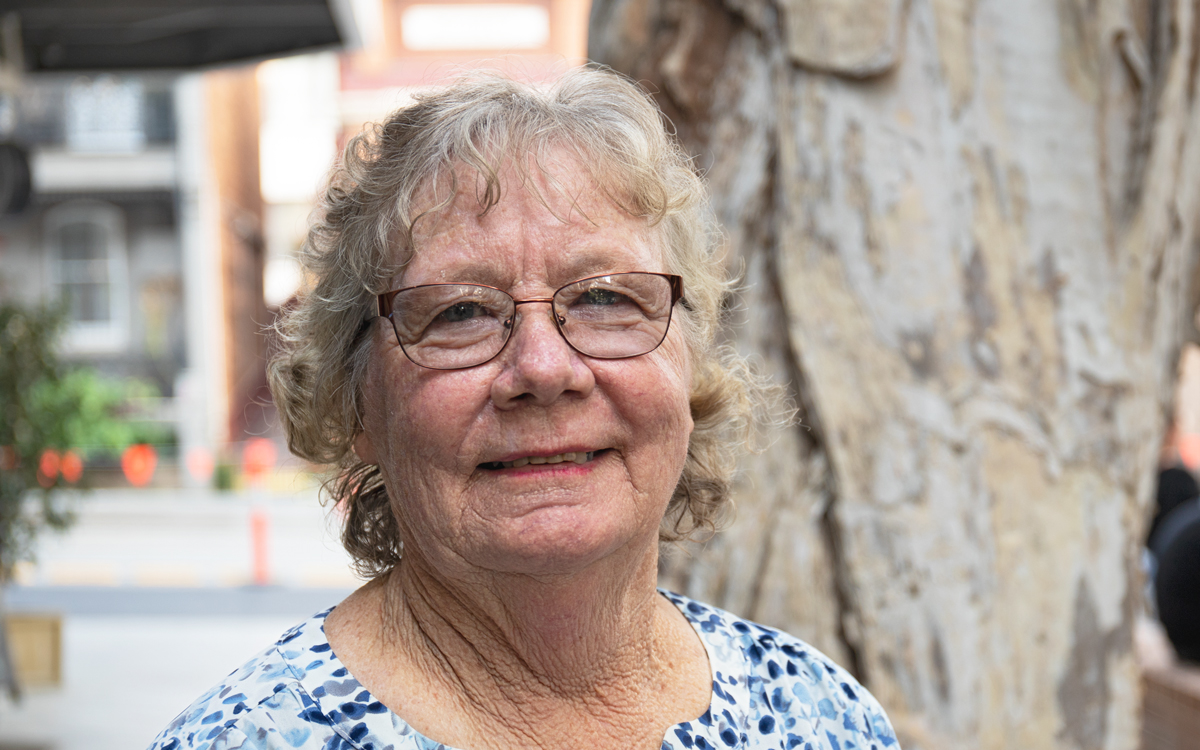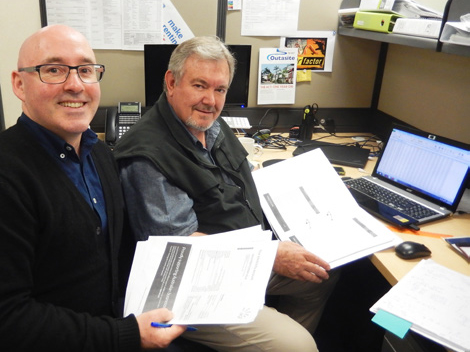Electricity: The battle over usage charges approaches resolution
07/08/2019

When we published our last issue of Outasite (in July 2018) the battle over electricity usage charges was in the early stages and as most home owners will be aware, a great deal has happened since then. In this article we will attempt to bring you up to date.
Since the introduction of the Residential (Land Lease) Communities Act 2013 park operators have disputed how electricity costs should be charged to residents.
In Silva Portfolios Pty Ltd trading as Ballina Waterfront Village & Tourist Park v Reckless [2018] NSWSC 1343 the Supreme Court determined that operators cannot charge home owners more for electricity than they are charged. The question then became about how those charges should be calculated.
In Reckless v Silva Portfolios Pty Ltd t/as Ballina Waterfront Village and Tourist Park (No. 2) [2018] NSWCATCD, the NSW Civil and Administrative Tribunal (NCAT, the Tribunal) accepted the evidence of an expert witness and determined that the calculation should be: the total amount billed to the operator divided by the total kilowatt hours (kWh) consumed in the community. This provides a kilowatt rate that home owners are charged for each kWh they consume. The charge includes supply and home owners no longer pay a service availability charge (SAC) when they are charged under this method. The method is commonly referred to as the ‘Reckless’ or ‘Reckless No. 2’ method.
Tribunal determinations on electricity charges have been inconsistent. In proceedings involving other parties, the Tribunal has accepted different methods of calculating refunds including applying the peak rate paid by the operator and also an ‘averaging method’.
Roundtable
The uncertainty about electricity charging continued for residents. Seeking to reduce rumour and misinformation, the Government called a roundtable meeting of key stakeholders to work towards achieving clarity and consistency. The meeting was hosted by NSW Fair Trading and attended by the NSW Energy and Water Ombudsman (EWON), the Tenants’ Union, the Land Lease Industry Association (LLIA) and the Affiliated Residential Parks Residents Association (ARPRA).
The Government was looking for agreement and the majority of stakeholders stated that they supported the ‘Reckless’ method. The Tenants’ Union advised that while ‘Reckless’ was not our preferred method, where homeowners were happy to accept it we would not dissuade them.
There was an acknowledgement from all stakeholders that if home owners want to pursue other methods they are free to do so.
Access to operator accounts was discussed and there was agreement that operators should be providing home owners with a copy or reasonable access. The LLIA advised that many operators have started displaying their bills on noticeboards or in their offices so that home owners have easy access.
The issue of refunds for incorrectly charged electricity was more contentious and there was no agreement about what period may be considered reasonable. The Tenants’ Union advised that we believe home owners should be refunded back to November 2015. However, we are aware that many home owners are willing to negotiate and we support negotiated settlements where it is possible.
Following the roundtable meeting NSW Fair Trading updated the information regarding electricity charges on their website and they have included a new Frequently Asked Questions (FAQ) section which is very informative. You can find this information at www.fairtrading.nsw.gov.au
The current state of play
The feedback the Tenants’ Union has received indicates the majority of operators are now changing the way they charge for electricity and the ‘Reckless No. 2’ method is being widely adopted. Some operators have not explained this change to home owners and have merely changed their method of invoicing.
What is disappointing is that many operators are refusing to offer any refund at all to home owners, even when they have made previous promises that refunds would be given once the issues were settled. Home owners in these communities have no choice other than to make Tribunal applications if they want a refund.
There are currently numerous applications still to be determined by the Tribunal and we have been advised of home owners who intend to make applications because their operator has failed to refund any overpayments, or has made an offer residents don’t consider to be reasonable. We spoke to one such home owner from Kincumber Nautical Village where the operator initially offered only a three month refund to home owners. They rejected that offer and were then offered a refund back to April 2018 which they believe is just 14% of their entitlement.
In another community on the Central Coast the operator wrote to home owners many times stating that once ‘Reckless’ was determined their electricity bills would be recalculated and they would be refunded any overcharge since November 2015. That operator initially refused to offer any refunds but has now also offered refunds back to April 2018.
Further up the coast a home owner advised “We have been deceived and mislead for over two years. The company have now decided to ignore the previous negotiated agreement which was to apply the outcome of my Tribunal application to all residents on the embedded network in this community. The operator has told home owners they will all have to apply to the Tribunal if they want a refund”.

In July, just before this issue of Outasite went to print, the Tenants' Union was in the Tribunal representing 93 home owners in one land lease community at Parklea Stanhope Gardens who have made applications to the Tribunal. Collectively, our clients are seeking a refund of $126,000 for electricity overcharging.
Mary Preston, one of the home owners, says she feels misled by the operator. The operator in that community put up a notice in October 2018 advising there was “no need for home owners to lodge individual applications to the Tribunal.” The operator failed to offer any of the home owners a refund.
These 93 matters were heard in the Tribunal on 8 July 2019, before Senior Member G Blake SC. This matter will serve as a test case because this was the first hearing where there was expert witness evidence before the Tribunal from all the parties.
Expert witness evidence was called on behalf of the home owners from Mr Rohan Harris of Oakley Greenwood. Expert witness evidence was also called on behalf of Parklea Operations (who are part of the Hometown Australia Group) from Ms Marija Petkovic of Energy Synapse. The home owners also gave evidence of the methodology they used for their refund calculations based on the “off peak” per kWh rate.
The Tribunal decision is reserved. The Parklea home owners are optimistic of a successful outcome and a timely decision from the Tribunal. Whichever method for calculation of electricity charges is ultimately accepted by the Tribunal the home owners will be getting significant refunds for electricity overcharging from the operator.
Tribunal applications
The problem that many home owners will face if they have to apply to the Tribunal for a refund is time. All applications to the Tribunal are required to be made within a certain period of time of the dispute arising. For electricity disputes the time period is 28 days because the Tribunal Rule 23(3)(b) applies. Home owners can seek an extension of time in which to bring an application, but the Tribunal has discretion on whether to allow the extension.
There have been many views about when time starts in electricity disputes but the Tribunal Appeal Panel recently answered this question in Bavin v Parklea Operations Pty Ltd [2019] NSWCATAP 120. The Appeal Panel found:
“Accordingly, in this case and on the proper construction of rule 23(3)(b) of the NCAT Rules and s156 of the RLLC Act, time began to run from the time the appellants were in dispute with the respondent in regard to the alleged overcharging and not from the time the respondent issued an electricity bill the appellants allege to exceed what the respondent was entitled to charge under s 77(3) of the RLLC Act. The fact that the dispute between the appellants and the respondent involved bills that had been issued and paid for over an extended period of time prior to the date on which the dispute actually arose is, in our view, not material to the question as to when time begins to run for the purposes of rule 23(3)(b).”
In effect, this finding means that the dispute arises at the point where a home owner first sights a bill issued to the operator and is able to establish from that bill that they have been overcharged. This is good news for home owners who have not yet sought access to the operator’s accounts. The decision provides much needed clarification on this very important issue.
The Tribunal directs applicants for refunds of electricity to have regard to the decision of Reckless v Silva Portfolios (No.2) case. If the applicants do not use the method set out in paragraph 39 of the reasons for decision in Reckless No.2, they must make submissions as to why they have followed another method of calculation.
What is fair?
There are many different opinions about electricity charges and refunds and what the future impact will be on the industry and home owners. The law says that operators cannot charge home owners more for electricity than the operators themselves are charged by their provider. Home owners who are seeking to be correctly charged are simply asking for the law to be rightly applied.
Operators are not electricity retailers. The sale of electricity is not their primary business, operating a land lease community is. On-selling electricity is a service some operators choose to provide and the law allows them to recover their costs for providing this service.
For many years operators have been purchasing electricity at low, commercial rates and selling it on to home owners at the highest rate possible. Since 1 November 2015 that practice has been in breach of the Residential (Land Lease) Communities Act 2013.
The law states that if a home owner has been overcharged for electricity as a mistake of law or fact they are entitled to recover that amount.
Those home owners who have taken action on this issue have done so because the site agreements were not properly followed by operators. Operators now having to pay money back to home owners may be upset that they are no longer able to make substantial profits from on-selling electricity to home owners. Was it fair that they were ever able to do that?
